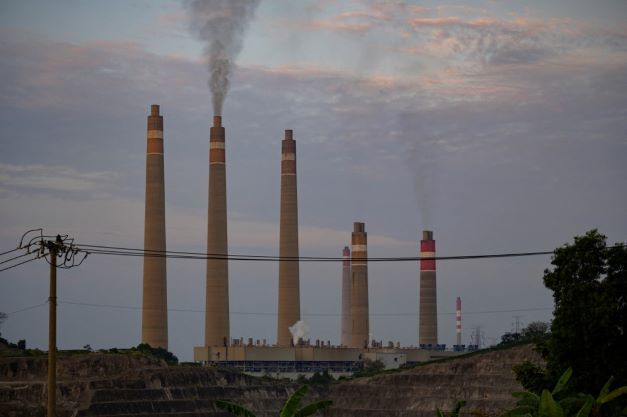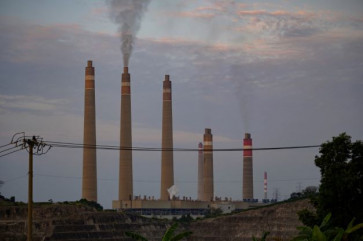Popular Reads
Top Results
Can't find what you're looking for?
View all search resultsPopular Reads
Top Results
Can't find what you're looking for?
View all search resultsIndonesia’s new carbon pricing: Green transition or greenwashing?
The carbon tax will potentially shift to individuals and small businesses instead of big polluters, for example, by increasing the price of electricity.
Change text size
Gift Premium Articles
to Anyone
L
ast year's United Nations Climate Change Conference (COP26) highlighted the critical need for countries to reduce their greenhouse gas (GHG) emissions immediately. We have less than 10 years to halve our emissions and less than 30 years to reach zero emissions in order to limit global warming and avoid climate catastrophe.
The Indonesian government, in its Nationally Determined Contribution (NDC), has committed to reducing its GHG emissions by 29 percent by 2030, or up to 41 percent with international help. Therefore, it is critical and urgent to prioritize a green transition, especially for Indonesia's energy sector, which is still heavily dependent on fossil fuels.
To help achieve its targets, the government recently released two significant carbon policies: Law No. 7/2021 on Regulation Harmonization for a carbon tax and Presidential Regulation No. 98/2021 on the Economic Value of Carbon and trading system for Indonesia.
Originally the government planned to enforce the carbon tax and trade regulations on coal power plants starting Friday last week. However, implementation of the regulations has been delayed until July, reportedly to protect consumers from rising prices and to allow for better preparation for the enforcement of the regulations. This is unfortunate, since coal producers are currently profiting from record-high exports and high prices following global economic recovery and Russia’s invasion of Ukraine. The carbon tax is an important measure needed to accelerate the green transition.
On the positive side, it is a promising step that the government is making plans to address carbon emissions from the biggest polluters, starting with the energy sector, which is projected to be the biggest emitter in 2030. Under the new regulations, polluters will have to pay Rp 30,000 (US$2.01) per ton of CO2 equivalent that exceeds the emissions cap determined by the government. It is expected that the carbon pricing will have a real impact on the electricity sector which is largely powered by coal at 67 percent. In the second phase, the carbon pricing will be applied to other sectors starting in 2025.
However, if not regulated effectively, there is a risk that carbon pricing will merely result in “greenwashing” – misleading the public to think companies are more environmentally friendly than they really are. There are several concerns with the mechanism that could allow this.
First, the carbon tax will potentially shift to individuals and small businesses instead of big polluters, for example, by increasing the price of electricity. This is because the carbon tax regulation applies not only to entities, but also to individuals, products and activities. Also, there is a high risk that fossil fuel companies could raise prices to essentially pass the cost of their taxes down, for example to state-owned electricity company PLN and further to consumers. This is a problem because it is the polluters who must be held accountable.



















